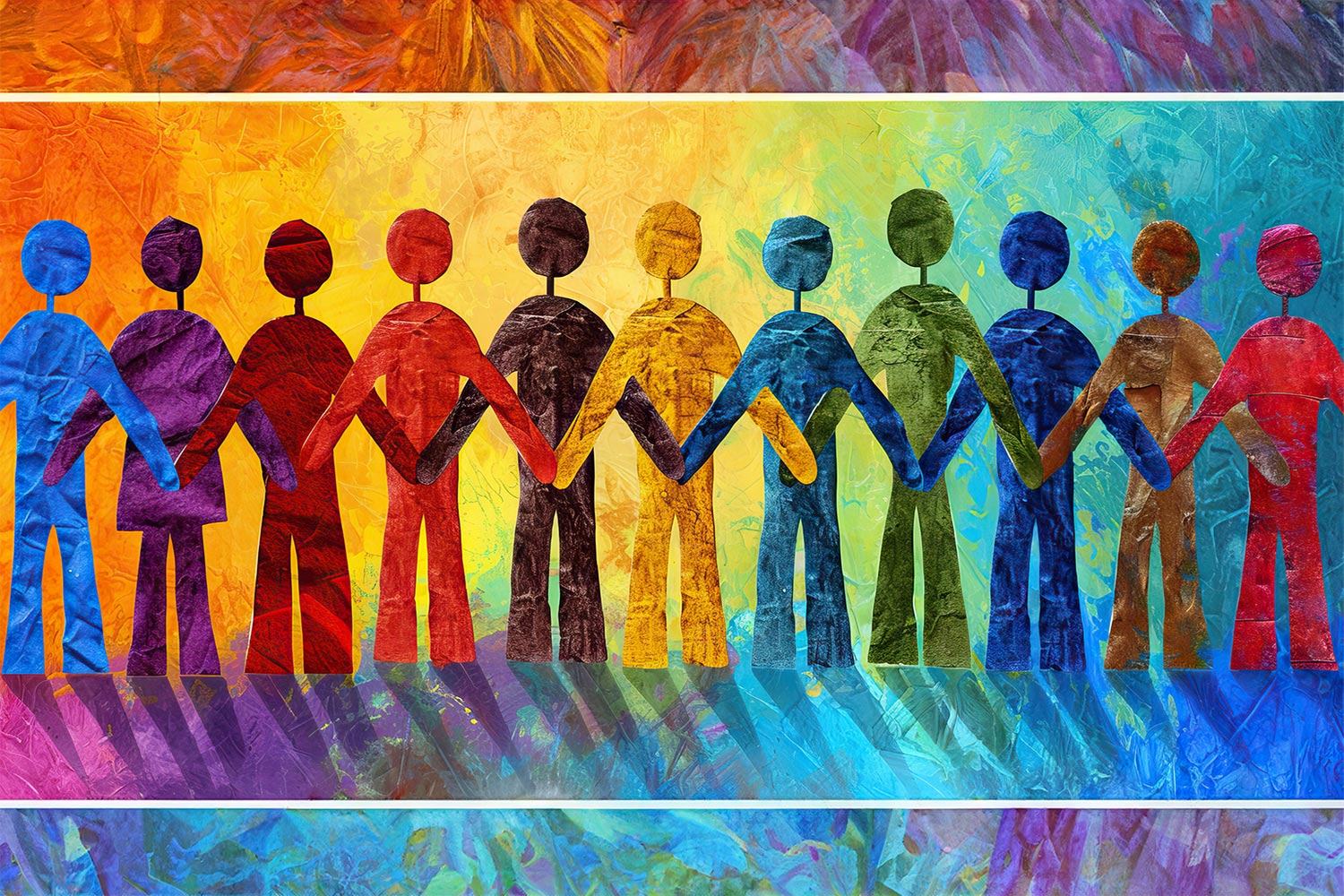As Nonprofits Face the DEI Wars, Can a “Prohuman” Approach Help?
Nonprofits were eager and early adopters of Diversity, Equity, and Inclusion (DEI) initiatives. They’re now having to reckon with the backlash against DEI.

Recent sweeping actions by the Trump administration have brought Diversity, Equity, and Inclusion (DEI) training programs and policies into the headlines, with implications for both government and the broader workforce — including nonprofits.
The nonprofit sector has long been committed to being a place where people from diverse backgrounds and identities can thrive and contribute.
Nonprofits were early and eager adopters of the language and professional community that grew up around DEI, because of the persistence of negative experiences and injustices that even many of the harshest critics of DEI would admit are real.
But over the past few years, many people — even within the sector — have become disillusioned with common institutionalized approaches that fall under the DEI label.
Ironically and tragically, DEI’s most passionate proponents — and most passionate opponents — are both reacting to the same root cause: Something is broken in how Americans encounter each other across differences.
Repeated Cycles of Overreach and Backlash
The 20th Century saw tremendous progress for America’s pluralism, with advances in equal treatment for women and people racialized as minorities, and unprecedented interreligious harmony.
Yet, as that progress triumphed in law and turned towards culture, it led to repeated cycles of overreach and backlash — think of the “politically correct” conflicts of the 1990s and the “woke” / “anti-woke” dynamics of the past half-decade.
How Can We Get to Someplace Better?
The answer begins with a black man sitting down with a Klansman in a Maryland bar.
The man is Daryl Davis, whose efforts to build bridges with KKK members — and talking dozens of them into giving up their robes and leaving hate behind — have become legendary. (If you’re unfamiliar, watch Daryl’s TEDx talk and the documentary “Accidental Courtesy.”)
Davis is among the co-founders of a new organization aiming to help America remember how to listen again.
The Prohuman Foundation seeks to break through demonization and division by lifting up the individuality and shared humanity of every person.
In a world of bitter fights between “antiracist” and “anti-woke,” the Prohuman Approach is focused not on either of these “anti” directions, but on the “pro-” that renders both unnecessary.
The Prohuman Approach works on three layers: The individual, the relational, and the communal.
- Individually, it asks us to adopt a growth mindset, committed to practicing gratitude, optimism, and grit. Sometimes, before attempting difficult conversations with others; we need to work on ourselves first.
- Relationally, the Prohuman Approach teaches curiosity, courage, and compassion. Having solidified our individual selves, we’re ready to be truly open to the full individuality of others.
- Communally, the Prohuman Approach aims for fairness, understanding, and embracing our common humanity — all of which create strong communities.
Can the Prohuman Approach Help?
I’ve spent the past five months learning about the Prohuman Approach in their Prohuman Ambassador program, and the experience has been inspiring and uplifting. It has changed how I think about my local community, my nonprofit workplace, and the nonprofit sector.
At a time when many nonprofit professionals are looking for ways out of the dead end of DEI controversies, can the Prohuman Approach help?
The Prohuman curriculum is not yet offered officially for workplaces; the foundation’s initial focus is on K-12 schools. But I believe we in nonprofit organizations can still begin to ask ourselves questions inspired by the Prohuman Approach — questions like:
- How can we create that growth mindset as individual employees by leveraging gratitude, optimism, and grit?
- How can we create positive social relationships in our organizations with curiosity, courage, and compassion?
- How can we create social harmony in our organizations and communities, with fairness for all, mutual understanding, and recognition of our shared humanity?
Dodging the Dogma Trap
Let me be clear, however: I’m not calling for everyone to adopt this, or any one approach. What we need is this model’s emotional and relational skills, not a shared commitment to any one set of vocabulary.
Indeed, for those of us who find this model useful, we should heed the lessons of the model itself in how we advance it.
We should be grateful, gritty, humble, and hopeful enough in our individual convictions that we can advance Prohuman goals even without others being on board.
We should be committed in our interpersonal relationships to being curious, courageous, and compassionate — even toward those who would rather ground themselves in other, “rival” models.
And we should work towards building communities — workplaces, houses of worship, neighborhoods, and more — that foster fairness, understanding, and respect for everyone’s humanity, no matter what buzzwords people reference in making it happen.
Talking about either DEI or its alternatives has become fraught in ways it didn’t used to be. But if Daryl Davis can walk into a literal Klan rally, then all of us in the nonprofit sector can dig deep and find the courage to open up a conversation with our colleagues — and the even greater strength it takes to actually listen, with an open mind and heart.
You might also like:
- Ask Rita: Recording Conversations in the Workplace — Do I Have to Put Up with This?
- Moving Beyond Performance: Making DEI Actionable
- Five Internal Controls for the Very Small Nonprofit
- Drive Your Nonprofit’s Mission by Investing in Your People
- Supporting Caregiver Employees in the Nonprofit Sector
You made it to the end! Please share this article!
Let’s help other nonprofit leaders succeed! Consider sharing this article with your friends and colleagues via email or social media.
About the Author
Seth Chalmer is in the inaugural cohort of Prohuman Ambassadors with the Prohuman Foundation. He works for the nonprofit organization Leading Edge, but the opinions expressed in this article are his own.
Articles on Blue Avocado do not provide legal representation or legal advice and should not be used as a substitute for advice or legal counsel. Blue Avocado provides space for the nonprofit sector to express new ideas. The opinions and views expressed in this article are solely those of the authors. They do not purport to reflect or imply the opinions or views of Blue Avocado, its publisher, or affiliated organizations. Blue Avocado, its publisher, and affiliated organizations are not liable for website visitors’ use of the content on Blue Avocado nor for visitors’ decisions about using the Blue Avocado website.








Thanks, Seth! 👍